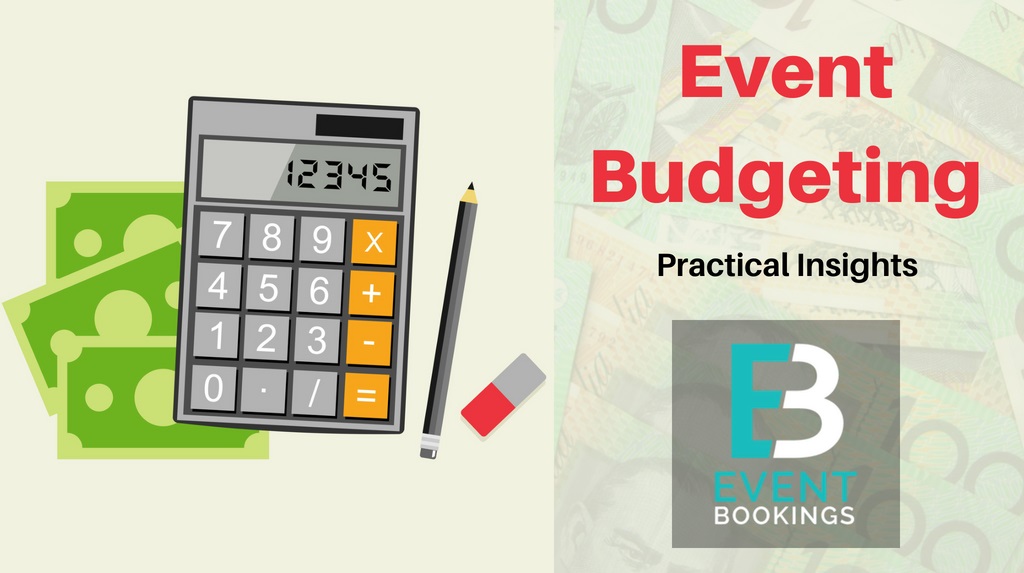As an event organiser, balancing the event budget is the toughest challenge you face. Almost all of the moving parts of an event are connected through a budget, so creating a specific and direct budget is a must for any successful event. Any event’s success depends on its outcome, which is often calculated financially.
It’s not usual that you fall in love with creating & managing an event budgeting process, but budgeting has always been a key issue in managing an event. No matter how small or large the scale of the event you’re organising, you must have a budget planning for the successful outcome, a strenuous, time-consuming and often boring job that is often deemed a necessary evil. And, when it comes to event budgeting, it’s better to be as precise as possible.
One positive of event budgeting? It’s a repeated process. This means you can create a common framework for the job and edit it as you progress. There are several aspects to consider. What’s a perfect strategy for an event’s budgeting? How do you plan the expenses? What type of strategy should you follow for your event’s promotion? How will you balance the budget with ROI? There are many more. This blog post is intended to give you a general idea of that common framework.
What Is an Event Budget?
An event budget serves as your event’s financial roadmap. Event budget management assists you in planning your anticipated costs and income so that you can efficiently manage your assets and remain on course to meet your event objectives. Setting practical expectations for how much you can spend on various aspects of your event and preventing overspending by your team are two benefits of planning your budget in advance. You can then more effectively prioritise the things you want to spend more money on.
You may include the following categories in your event budget:
- Fixed cost
- Variable cost
- Revenue
- Profit and loss
Event Budgeting Benefits
Here is a list of benefits you can get from event budgeting-
- Financial Control: If event planning expenses are not closely watched, they can quickly explode. By offering a comprehensive overview of all financial touchpoints, a budget guarantees that the organiser stays within the allocated financial parameters.
- Prioritisation: Not every element of an event is equally significant. While some components may not be required, others are essential to the event’s success. A budget compels the planner to carefully consider every expense, balancing its significance with the available funds.
- Enhanced Planning: A crucial step in the planning process is creating a budget. Understanding the financial constraints and allocations can help guide decisions regarding the venue, entertainment, catering, and marketing strategy, ensuring that all arrangements are cohesive and stay within the allocated budget.
- Risk Mitigation: Unexpected costs or budget overruns may put an event’s success at risk. A thorough budget serves as an early warning system, highlighting areas where revenue may fall short of projections or costs may surpass them.
- Increased Accountability: Organisers can take preventative action by anticipating these possible problems. Transparency and fiscal responsibility are essential in events, particularly those with several stakeholders. As expenses are incurred, they can be compared to the budget, which acts as a record of planned spending.
- Clear Communication: Budgets are communication tools as well as internal tools. A thorough budget makes the event’s financial situation clear when it is distributed to all parties involved, including sponsors, partners, and team members. This guarantees that everyone is aware of the financial limitations and has similar expectations.
- Performance Measurement: Budgets are communication tools as well as internal tools. A thorough budget makes the event’s financial situation clear when it is distributed to all parties involved, including sponsors, partners, and team members. This guarantees that everyone is aware of the financial limitations and has similar expectations.
Event Budgeting Challenges
Creating a budget for an event, however, is not without its difficulties. Here are a few of them:
Time-Consuming
Budgeting can be quite challenging, specifically when it comes to events. It requires paying close attention to details and having a thorough grasp of the event’s scope. Careful research is needed to predict possible revenue streams like ticket sales or sponsorships. Although it undoubtedly requires a significant time commitment, this thoroughness guarantees that all financial aspects are covered.
Unexpected Expenses
Even with the best-laid financial plans, things can go wrong. Unexpected expenses may arise from a variety of sources, such as last-minute equipment repairs, the need for more staff, or unforeseen logistical difficulties.
Dynamic Changes
The event sector is vulnerable to changes in the market. Demand spikes, seasonal fluctuations, or outside economic factors may cause prices for goods or services to rise. In a similar vein, a previously accessible service or product may become scarce, necessitating a strategy change or vendor change.
Balancing Quality and Cost
Top-notch entertainment, gourmet catering, upscale venues, and cutting-edge equipment are all expensive. It becomes challenging to hold a balance between the need to provide an event experience that is unmatched and the limitations of a predetermined budget.
Approximation Errors
Making a budget requires some degree of forecasting, which may not work out. Financial forecasting mistakes can have major consequences, whether they involve an overestimation of ticket sales or an underestimation of logistical expenses. These errors in judgment can result in budget surpluses or deficits, which create difficulties.
Stakeholder Dissimilarities
Many stakeholders, each with their own goals and priorities, are frequently involved in events. These can include partners, investors, sponsors, and participants. Divergent viewpoints lead to varying ideas about the best way to organise the budget.
Approaching an Event Budget

When it comes to the question of how to manage an event budget, there are a few steps you must take in order to develop a successful budget plan. We have listed six steps so that you know how to make a budget plan for an event-
1. Know Your Event Goals
How does one begin creating an event budget plan? Establish your event’s objectives.
Everything you have in mind for your event, including the setup, technology, decorations, talent, merchandise, and big picture, should be included in the budget. Setting reasonable expectations for your event will also be aided by being transparent about its objectives and priorities. Prior to organising the event itself, evaluate your aims and objectives.
2. List Down Specific Expenses
It’s time to start researching the specifics of each budget line item. A good list of things to include should be created based on your inspiration and past experiences. However, the following are the most crucial costs to factor into your event planning budget:
Promotion and Marketing of Events-
- Paid advertising and social media
- Printed advertising collateral
- Design of graphics
- Influencer and affiliate fees
- Marketing with paid content
Event Fees on-site-
- Venue for Event Staff
- Food and drink
- Visual and Audio Equipment
- Entertainment and speakers
- Security
- Transportation
Technology for Event Management-
- A platform for event management
- Reservation and ticketing costs
- Mobile event app and event website
- On-site registration and check-in
- Technology for virtual events
3. Get Multiple Vendor Quotes
For all of the previously mentioned expenses, you ought to obtain several quotes from different businesses. This enables you to bargain with vendors for a lower price and is the best method to make sure you’re getting a good deal.
Obtaining multiple quotes also helps you understand how prices differ for different items. Until you speak with multiple vendors, you won’t be aware of the price range. They can also assist you in determining what you need and don’t need. They may even be aware of ways to reduce costs on a particular line item.
4. Balance Income and Expenses
Your overall budget will be greatly impacted by the amount of money you anticipate the event will generate. Selling tickets, finding sponsors, selling products and services at the event, and coming up with other innovative ways to generate revenue are all ways to earn money.
Make sure your proposed event budget includes estimates for each of these revenue streams. This will assist you and others in determining the anticipated cost and return on investment of the event.
5. Separate Emergency Event Expenses
Errors are inevitable, as anyone who has organised an event knows. You may need to make a last-minute rush if you run out of something on the day of the event. To fit the space, you may need to upgrade your video and audio equipment. You may need to call in sick speakers. Regardless, you should have a rainy-day fund on hand.
The size of your event and the contingency plans you have in place will determine how much additional you need. However, generally speaking, you ought to include 15–30% of your overall budget.
6. Use an Event Management Software
Organising an event can be difficult and time-consuming. Naturally, hiring a professional team to plan the event is the best option, but if your event is complex, it might also be a good idea to purchase the appropriate event management software.

Select a management platform that has the ability to plan in-person, hybrid, and virtual events. Additionally, it should provide a committed customer service team that supports you all the way through.
Anatomy of an Event Budget Expenses
Generally, an event has three major types of expenses.
- On-site expenses
- Tech-support costs
- Event promotion expenses
A breakdown & brief discussion of these are as follows.
On-site expenses
In all likelihood, the lion’s share of your event budget will be spent in this particular sector. An event is mostly about live involvement, and you should spend as much as possible to ensure a memorable experience. Your primary focuses for on-site expenses are –
Venue
As the size of an event increases, so too does the expense. For big events, the venue might occupy the largest cut from the budget. As this includes such a large spend, you should be careful before choosing one.
Firstly, ensure the venue fits the event and its far-reaching goals. To speed up the process, take help from the information you gathered earlier. If there are venues you’ve already worked with or considered working with in the past, consider them as your starting point.
Logistics
Does hosting an event require any special agreements, licences, or insurance? These issues relate to logistics, which is a crucial component of any budget. The location of your corporate event will largely determine how accurately you can estimate this cost.
Food
How much will the food cost? The number of guests you anticipate and the size of the menu will determine this. Calculate the price by focusing on the size and type of event you are organising.
Staff Payments
Include employee compensation into your event plan template to avoid financial difficulties resulting from poor budgeting. The number of employees required to organise and manage a successful event must be determined by the directors or managers of the event. Find out what kind of payment is required and how much time you will need to spend.
Cost of speakers, participants & staff
Speakers are one of the most significant parts of an event. The quality of the speakers determines the overall attraction of the event. Take your time, and have a mindset to spend more money and effort in this area. Try to select speakers who tend to match your vision of the event and can fill in missing roles.
Finally, any event is totally lifeless without its participants, so try to create an amicable environment for them. Make necessary arrangements and employ a support team to help the guests and handle any occurrences on the spot. You should include the cost of these staff in your event budget allowance because this team will help the guests with registration, show them to their relevant rooms, and greet them upon arrival, which will prove to be a vital part of your event experience. As a result, keeping them pleased and on their toes is required. So, take their meal costs, travel costs, and other probable expenses into account.
Cost of technological support
Keeping in mind today’s tech-centric industry, investing in several event technologies would be a nice idea. Invest in the right software. One should keep track of everything from event registration to contact management. Choosing the right software is the fundamental piece that will give the final touch to your program.
Another important aspect of your event planning will be your event app. Often, this will come as a package with the event management software. So, make sure to allocate sufficient funds to technological aspects.
Costing of event promotion
After settling the issue of event technology, the next big thing is deciding the marketing strategy. There are numerous ways to promote your event; among the most popular ones include paid, search, public relations and social media promotions. Putting money into social media marketing can get a huge ROI. A simple Facebook event often has far more reach than one would have anticipated.
Travel & Accommodation
Will your business have to find accommodations for attendees? How much will it cost if this is accurate? This can be an easy budget item to overlook, depending on the size and scope of your event. To avoid underestimating the amount of money required to make your event a success, you should place this estimate at the top of your budget.
So, the importance of a foolproof event budget is apparent. It’s a crucial step towards successful event management. Meticulous planning and attention to detail is the key. If you consider all of our tips and tricks, nothing will prevent you from hosting an excellent event.




